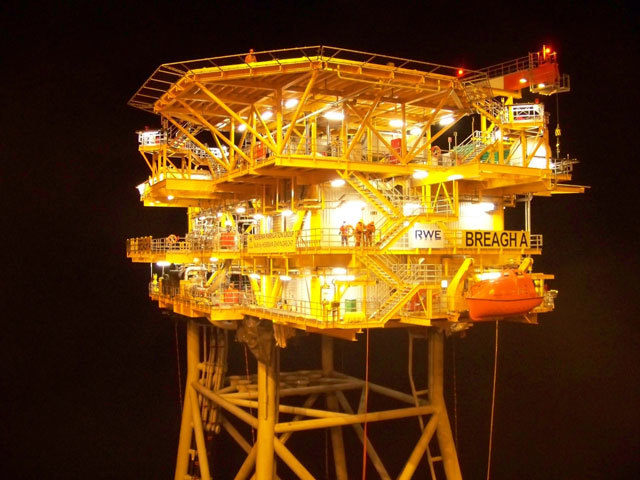
RWE AG had its first full-year loss since the foundation of the Federal Republic of Germany in 1949 as slumping power prices led to billions of pounds in writedowns.
The country’s largest power generator, which owns UK energy giant npower and the Breagh, Clipper South, Cavendish, Windermere and Topaz North Sea gas fields, posted a net loss of £2.26billion on sales of £44.5billion (54.1billion euros). The firm wrote down £3.95billion on assets, mainly power stations.
“Our power plants will earn even less in the coming years than we had feared,” said chief executive Peter Terium.
“We had to take this into account.”
The historic loss, the first since West Germany was forged from Allied occupation zones after World War II, follows Chancellor Angela Merkel’s transformation of the domestic energy market toward renewables and away from nuclear. A surge in wind and solar energy, now 23 percent of generation, has curbed prices, already weakened by Europe’s economic crisis.
“The difficult earnings situation in conventional electricity generation in Europe is clearly reflected in RWE AG’s financial results for fiscal 2013,” the Essen, Germany- based company said. RWE and rival EON SE are closing plants, cutting costs and dividends, and selling assets as wholesale power prices tumble, making much generation unprofitable.
RWE plans to close or mothball a total of 6,590 megawatts of generation capacity, it said in an investor presentation, adding 2,325 megawatts to the target it gave in August.
The operating profit from conventional generation fell 58 percent to 1.38 billion euros, the presentation showed. Its share of the total fell more than half to 24 percent and will continue to drop to as little as 5 percent in the mid-term.
On the flipside, RWE reached its cost cutting target of £823million (1billion euros) by the end of 2013, a year earlier than planned, and now expects to achieve 1.5billion euros of cost savings by 2016 instead of 2017, the company said in the statement.
“The fact that RWE over-achieved its efficiency target did, however, not result in higher than expected earnings,” warned Ingo Becker, an analyst at Kepler Cheuvreux.
Recurrent net income, used to calculate dividends that were cut in half to 1 euro for 2013, fell to 2.31 billion euros from 2.46 billion euros, the company said. That missed the average 2.39 billion euro estimate of 18 analysts surveyed by Bloomberg.
The utility confirmed a forecast that the recurrent net income will fall to 1.3 billion to 1.5 billion euros this year.
Earnings by that measure declined 29 percent to 399 million euros in the fourth quarter on sales of 14.2 billion euros, calculated by taking nine-month earnings from annual results.
Recommended for you
